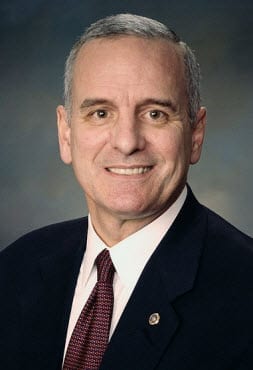 The state’s bill for the program at the heart of the healthcare reforms is higher than predicted.
The state’s bill for the program at the heart of the healthcare reforms is higher than predicted.
According to Governor Mark Dayton’s administration, the cost of operating the health insurance exchange in the year 2015 is now predicted to be around $54 million.
Previous forecasts had placed the expense at between $30 million and $40 million for the state.
That said, Minnesota will not need to obtain those funds until that year, when the state health insurance exchanges are required to be able to sustain themselves, financially. The same projections have indicated that the cost may increase in 2016, to reach $64 million.
The state officials are now examining ways to make the health insurance exchange pay for itself.
Among some of the options being considered include a sin tax (for users of tobacco products, for example), implementing user fees, or selling ad space. No decisions have yet been made. At the moment the officials in the state are simply going over the various options available to them to help to make certain that they comply with the new healthcare laws.
The health insurance exchanges are the heart of the federal overhaul to the healthcare system. They require that the states each have an online marketplace where plans can be purchased by individuals, families, and small businesses. The plans need to be available for sale as of October of 2013 so that the coverage can become effective with the start of 2014.
The Dayton administration has also made a health insurance announcement that they will be requesting an additional $39 million above their initial predictions, in order to pay for the creation of the exchange in Minnesota. Should the grant be approved by the federal government, then the total amount of money that the state will have received from the federal government will be brought to $110 million.
This new health insurance exchange financial prediction is the result of the information that was submitted by the state earlier this month when it applied to the federal government for creating its own program. Many states have already fallen behind in their exchange plans and some may be even slower to get started following an extension in the deadline for deciding whether or not the programs will be state- or federally-run.
